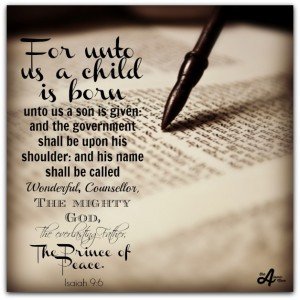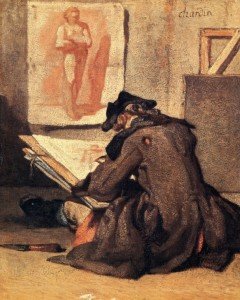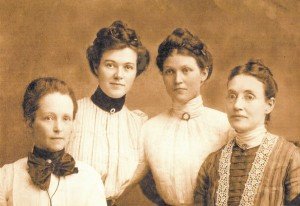400 years ago, King James I encouraged his fellow Brits to worship in any church they wished, as long as it was the Church of England. Everyone else was persecuted.
One group, the Separatists (whom we usually call Pilgrims) left England for the Netherlands, in search of religious liberty. In the Netherlands, they did have religious freedom, but were treated as second class citizens; they did not have economic freedom. The Separatists decided there was only one final option: travel to edge of the world. Obtaining financing and a charter to establish a colony in the Virginia area, 102 people set off on the tiny ship, the Mayflower.
The voyage was not an easy one. Miraculously, only two people died on the crossing. One of those was a sailor, who swore and cussed frequently. The Separatists warned him that he would bring a curse upon their ocean voyage, but he did not listen. He was washed away during a storm.
A similar incident occurred to John Howland, my ancestor. He was an indentured servant to John Carver. During a major storm, he was on deck trying to take a message from Governor Carver to the ship’s captain. A large wave hit the deck and carried him overboard. By a stroke of Providence, he was able to grab hold of a rope as he was swept overboard, and held on underwater for several minutes until the sailors could haul him back aboard.
Arriving to the Americas, the Pilgrims found the storms had pushed them further north than they planned. It was too late in the year to travel down to Virginia, and so they established a new charter for the group: the Mayflower Compact. This covenant was signed by 41 men. In William Bradford’s handwriting, the charter reads:

In the name of God, Amen. We, whose names are underwritten, the loyal subjects of our dread Sovereign Lord King James, by the Grace of God, of Great Britain, France, and Ireland, King, defender of the Faith, etc.
Having undertaken, for the Glory of God, and advancements of the Christian faith and honor of our King and Country, a voyage to plant the first colony in the Northern parts of Virginia, do by these presents, solemnly and mutually, in the presence of God, and one another, covenant and combine ourselves together into a civil body politic; for our better ordering, and preservation and furtherance of the ends aforesaid; and by virtue hereof to enact, constitute, and frame, such just and equal laws, ordinances, acts, constitutions, and offices, from time to time, as shall be thought most meet and convenient for the general good of the colony; unto which we promise all due submission and obedience.
In witness whereof we have hereunto subscribed our names at Cape Cod the 11th of November, in the year of the reign of our Sovereign Lord King James, of England, France, and Ireland, the eighteenth, and of Scotland the fifty-fourth, 1620.
John Carver
William Bradford
Edward Winslow
William Brewster
Isaac Allerton
Myles Standish
John Alden
Samuel Fuller
Christopher Martin
William Mullins
William White
Richard Warren
John Howland
Stephen Hopkins
Edward Tilley
John Tilley
Francis Cooke
Thomas Rogers
Thomas Tinker
John Rigsdale
Edward Fuller
John Turner
Francis Eaton
James Chilton
John Crackstone
John Billington
Moses Fletcher
John Goodman
Degory Priest
Thomas Williams
Gilbert Winslow
Edmund Margesson
Peter Browne
Richard Britteridge
George Soule
Richard Clarke
Richard Gardiner
John Allerton
Thomas English
Edward Doty
Edward Leister
Continue reading →
 Today marks the first Sunday of Advent. Advent is a time of expectation and preparation for the Christmas holiday. During the weeks of Advent many Christians participate in readings, songs, worship, devotionals, and traditions that prepare them for the arrival of the Christ Child on Christmas Eve. Advent is not something that is normally associated with LDS Christmas worship, but in many countries around the world, LDS families, along with members of other Christian faiths, celebrate the four weeks before Christmas in preparation for the holiday.
Today marks the first Sunday of Advent. Advent is a time of expectation and preparation for the Christmas holiday. During the weeks of Advent many Christians participate in readings, songs, worship, devotionals, and traditions that prepare them for the arrival of the Christ Child on Christmas Eve. Advent is not something that is normally associated with LDS Christmas worship, but in many countries around the world, LDS families, along with members of other Christian faiths, celebrate the four weeks before Christmas in preparation for the holiday. 


